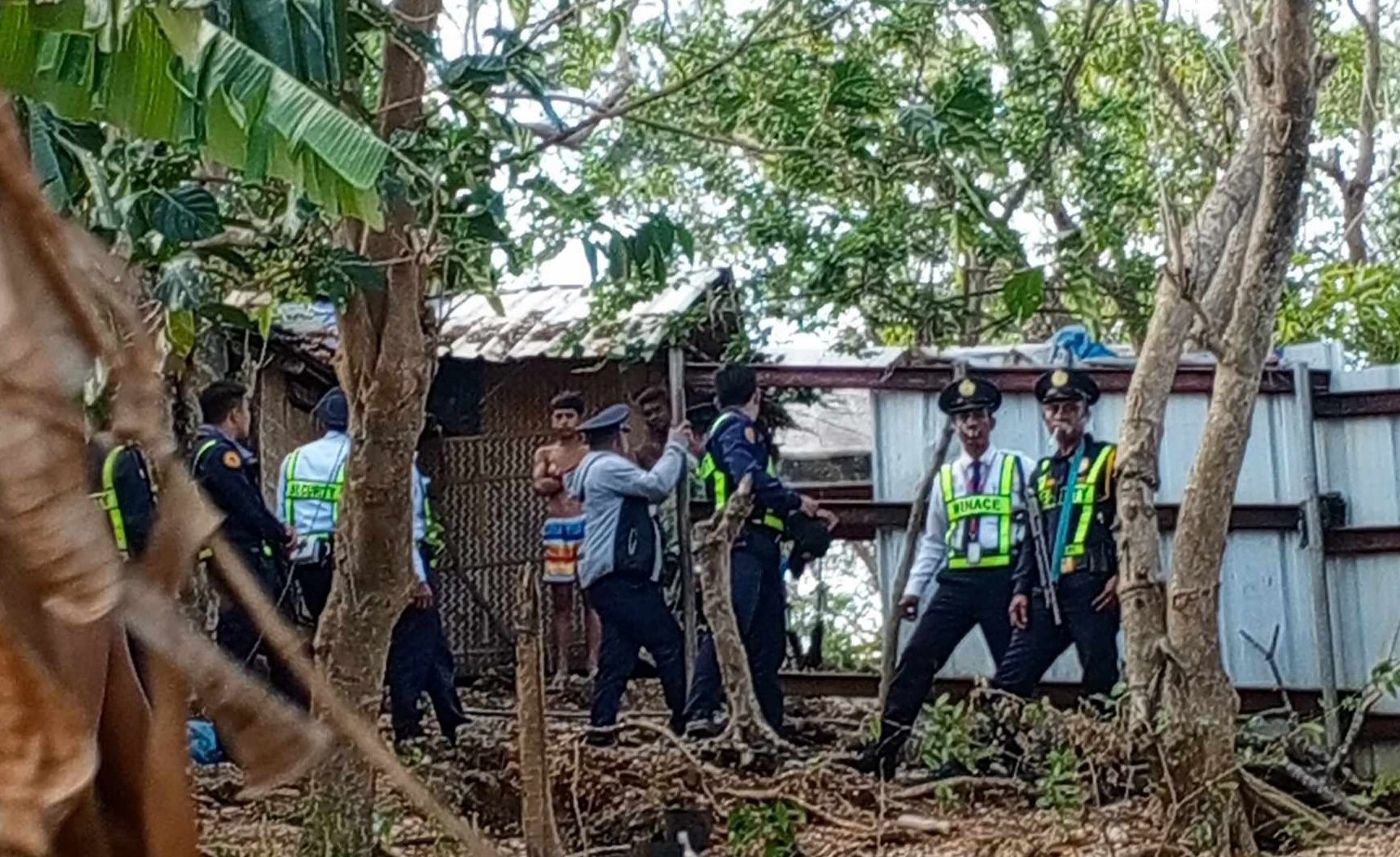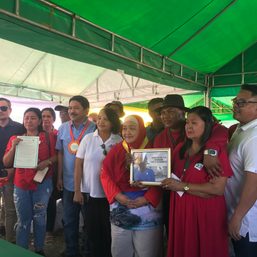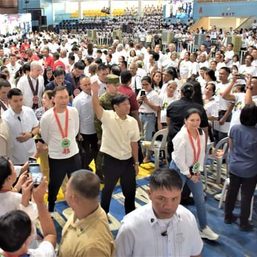SUMMARY
This is AI generated summarization, which may have errors. For context, always refer to the full article.

MANILA, Philippines – Department of Agrarian Reform Secretary Conrado Estrella III has ordered the allocation of government-owned land to the 44 Ati in Boracay Island who were displaced following the cancellation of a collective Certificate of Land Ownership Award (CLOA) issued by the Duterte administration, DAR said on Wednesday, March 27.
Estrella gave the order days after the Boracay Ati Tribal Organization (BATO) urged the Commission on Human Rights (CHR) to intervene in the legal dispute between them and a land developer that had fenced off their property in Boracay even when the land ownership issue was supposedly still pending in court.
DAR said that according to Undersecretary for Legal Affairs Napoleon Galit, Estrella issued the directive immediately after the owners of the 1,282-square meter land in question reclaimed the property on March 26.
“DAR will extend all assistance and support services to all our agrarian reform beneficiaries, but we must uphold the law,” said Galit.
DAR said that Estrella wants the affected Ati to return to farming through the grant of agricultural land to cultivate, but did not provide additional details.
In November 2018, then-president Rodrigo Duterte gave land to BATO members through a collective CLOA.
DAR said that based on its records, private claimant Digna Elizabeth Ventura, whose property covered the 1,282 square meters of land occupied by the concerned BATO members, filed a protest on April 10, 2019, against the inclusion of her property in the 2018 CLOA.
DAR said that its Western Visayas office ordered Ventura to provide a soil analysis test regarding the suitability of the disputed land for agricultural purposes.
DAR decision
In 2023, Ventura presented a certification issued by the Agricultural Land Management and Evaluation Division of the Bureau of Soils, confirming that the subject land is “not suitable for agriculture,” DAR said.
Given the findings, DAR Western Visayas chief Sheila Enciso upheld the private claimant’s protest and directed her to file an application for CLOA cancellation before the Office of the DAR secretary.
Galit said that the DAR chief issued a final order of CLOA cancellation on March 5, 2024, as the 44 claimants failed to show proof that would invalidate the DA certification.
“The petitioners representing BATO were unable to present any controverting evidence that would have prompted us to overrule the DARRO’s ruling. They lacked evidence to support their claim of occupancy of the area covered by the CLOA,” said Galit.
Galit also pointed out that the filing of the motion for reconsideration by BATO was in default, DAR said.
In seeking the intervention of the CHR in their land case, BATO had claimed that the private claimant began fencing off the property in Sitio Angol, Barangay Manocmanoc in Boracay even “even “without formal court notices.”
BATO leader Delsa Justo had claimed that their appeal was still pending at the Court of Appeals.
Prior to the release of the DAR statement clarifying the legal questions raised by BATO, Daniel Dinopol , the legal counsel of Katutubong Aetas, had claimed that the dispute remained pending in the court as they “never received an order from the secretary of DAR denying our motion for reconsideration.”
“There are still remedies for the Atis,” Dinopol said. He said they will talk with the Ati community and respect their wishes on how to proceed.
Not suitable for farming?
In an interview with Rappler, Sister Inah Ellana of the Daughters of Charity who assists the Ati in the village, said that the private claimant “did not seek permission” from the Ati community in getting soil samples from the land for testing by the Agricultural Land Management and Evaluation Division of the Bureau of Soils. This is a requirement imposed by DAR on the claimant to support the latter’s bid for CLOA cancellation.
Ellana claimed that the land is suitable for farming, noting that the Ati successfully cultivated crops there and even supplied local hotels with their harvest.
“If hindi suitable ang lupa for farming, bakit nakakapag-supply ang mga Ati sa mga hotels dito sa Boracay? Matataba ang mga tanim nila,” she said.
(If the land is not suitable for farming, how did the Ati supply hotels here in Boracay? They had lush crops.)
Ellana also scored the “forcible entry” of security people sent by the private claimant to fence off the property, as they refused to coordinate with their office citing orders from the claimant.
They don’t want to repeat of what happened in 2013, when Ati Dexter Condez, who spent years fighting for their ancestral land in Boracay, was shot dead by a security guard after exposing this dark side of the island. – With a report from Jed Nykolle Harme/Rappler.com
Jed Nykolle Harme is a BS in Agriculture major in Soil Science student at Aklan State university, Associate editor at Eamigas Publication, and is an Aries Rufo Journalism fellow for 2023-2024.
Add a comment
How does this make you feel?










There are no comments yet. Add your comment to start the conversation.